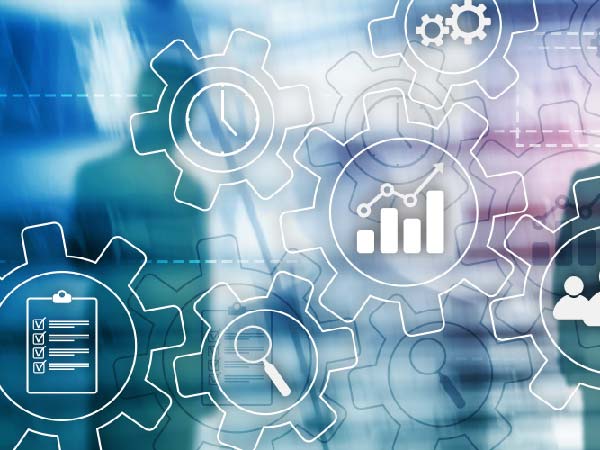Administration is an essential yet time consuming aspect of commodity trading; the process from deal capture through to contract creation, shipping and invoicing needs to be managed, often by several different teams within the business. However, we probably all have experience with the drawbacks of excessive administrative tasks; taking our focus away from our core business activities and introducing the risk of mistakes when completing record-keeping tasks.
Unfortunately, proper administration is a necessary and essential activity for many reasons within commodity trading. However, these administrative and repetitive tasks can be minimised as one of the major benefits of commodity management technology is that it can help your organisation reduce admin and create more efficient processes, reducing the operational risk of mistakes and empowering your people to focus on the activities that add value to your business.
A good commodity management system like Gen10’s CommOS allows you to automate your processes, document creation and reporting, reducing the burden of administration at all stages.
Just some examples of the areas where a commodity management system can save time and admin for commodity traders are highlighted below.
CRM
Before a trader considers working with a counterparty, they can check their pre-approved credit limit and real-time usage, as well as any certification and due diligence documents, so that they know whether the contract is pre-approved without the need to consult the Finance team.
Pricing
Every commodity has different variables that impact on pricing, from moisture content and colour grade for cotton to precious metal assays for metals and concentrates. CommOS allows you to perform instant ‘what-if’ analysis on different pricing options to create the best structure and automatically calculates pricing based on your specifications.
Assays, formulas, averages, composite curves, FX and interest can all be calculated according to your own rules, so every aspect of pricing is carried out within the Gen10 Pricing Engine. As well as saving calculation time, the risk of errors or omissions is reduced, because the pricing information is automatically used to populate the rest of the system, too.
Contract creation
The pricing information is combined with pre-approved templates to automatically create contract documents in your organisation’s approved format. The automated document creation ensures consistency across contract terms, whilst reducing the time spent creating and reviewing contracts, as well as the risk of errors that occurs when manually creating documents.
Workflows
Once a document is created or other actions take place, workflows automatically notify the next individual in your process that there is an action waiting for them, whether that is to approve the contract, send it to an operator for processing or email an invoice to a client. These workflows are automatic and set up in line with your business processes, meaning that there is less risk of stages being missed, documents waiting in individuals’ inboxes or incorrect information being shared.
The workflows can also trigger tasks with deadlines in shared calendars and show a complete audit log of every interaction with a given contract, so your people can check contracts’ progress and can intervene effectively to get things moving, even in the case of staff absences.
Interacting with counterparties
Some of the most frustrating and error-prone administrative tasks occur when copying information between systems, such as during confirmations or ensuring the CTRM and accounting systems are reconciled. Gen10’s architecture is based around collaboration and has been built to enable faster, automated data sharing between systems.
This includes APIs that can integrate with a range of systems, for example to update your commodity management system throughout the day as payments are received in your accounting system. CommOS also includes the ability for clients and your team to email the system (directly or in cc), and CommOS will automatically save the communication against the relevant contract.
Risk management
Early CTRM systems were designed to help organisations manage the financial risks associated with trading commodities by sharing information for after-the-fact reporting. They have expanded from this original mandate to support more of the processes involved in commodity management, but are too-often still reliant on individuals inputting information into the system after they have carried out an action.
With a commodity management system like CommOS, traders and operators are carrying out their actual role in the system – calculating pricing, creating documents and allocating shipments using the system to accelerate their activities. This means that the information is already stored within CommOS and doesn’t need to be manually re-entered by a busy trader later on.
As well as saving time for traders, this means that risk managers have a truly real-time picture of the entire business, so can make better decisions faster. It also means there is less friction between teams as risk managers and traders both have access to all the information they need whenever they need it.
Operations and logistics
It is not only traders who benefit from the reduced admin of a commodity management system; operators and logistics experts also typically need to conduct a lot of manual data entry and update disparate records regularly. CommOS can have just as a great an impact on their role, as we explored previously.
Whereas traditional CTRM systems were designed to make risk management more effective, but relied on traders and operators updating another report, commodity management systems approach from a very different angle. With a commodity management system, the focus is on making the actual work faster and more efficient, reducing time and administration, whilst freeing up your team from the need to report on these activities after the fact.
Get in touch with us today to find out just how much time CommOS could save your team.



